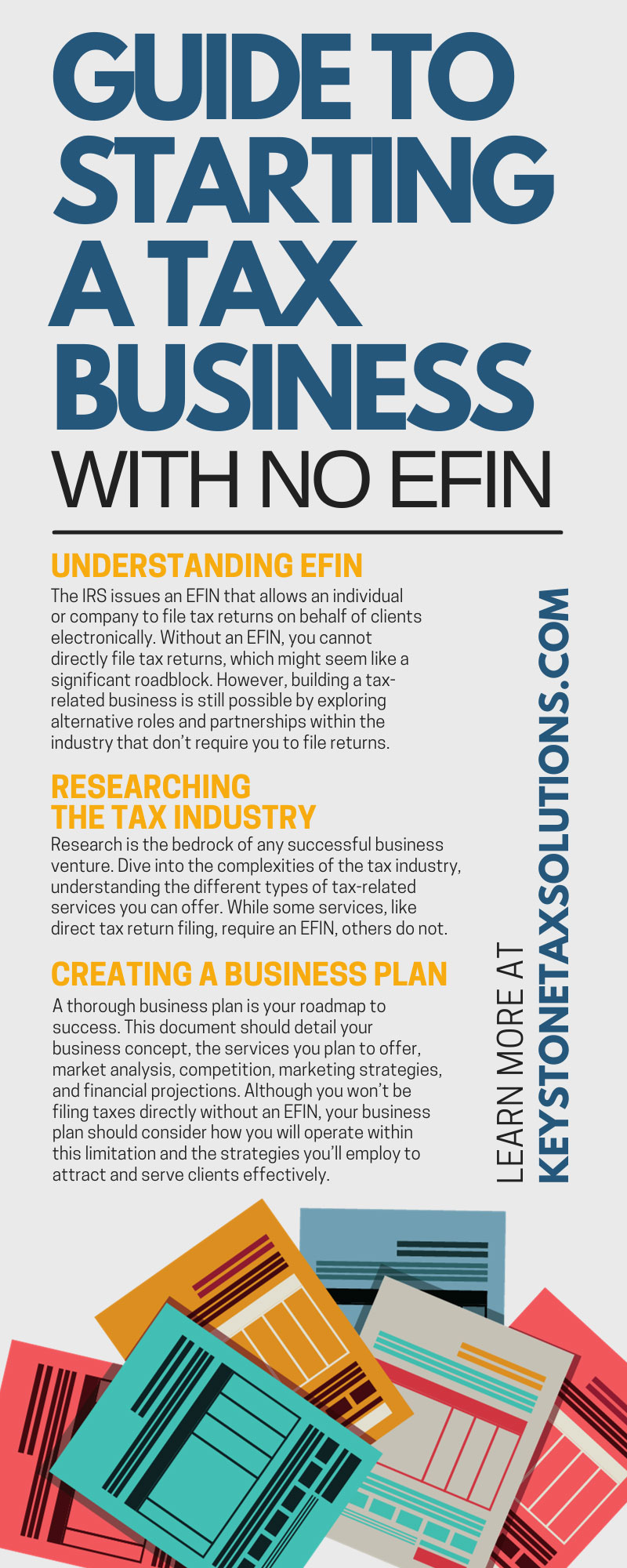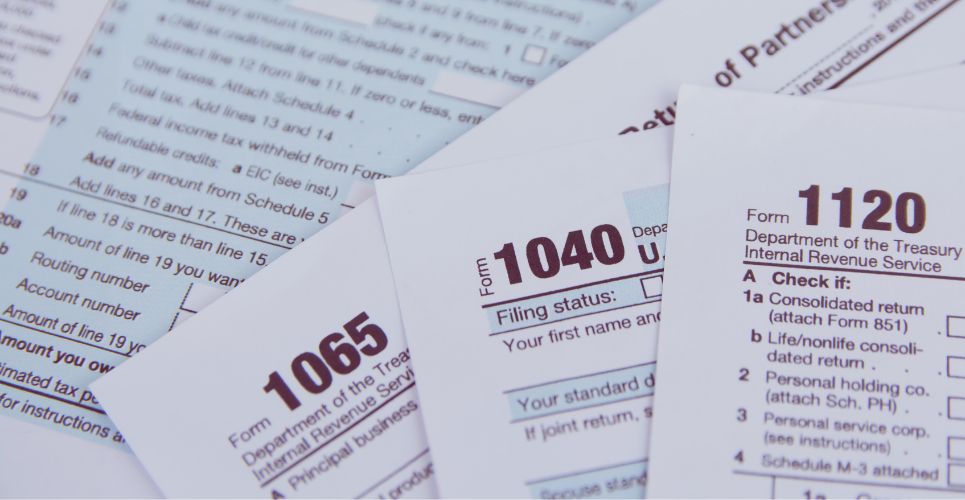Starting a tax business can be a rewarding venture, but it also comes with its fair share of regulatory hurdles, one of which is obtaining an electronic filing identification number (EFIN). What if you could start your tax preparation business even without this number? Read on for a comprehensive guide to starting a tax business with no EFIN.
Understanding EFIN
Before diving into the how-to of starting a tax business without an EFIN, it’s crucial to understand what an EFIN is. The IRS issues an EFIN that allows an individual or company to file tax returns on behalf of clients electronically. Without an EFIN, you cannot directly file tax returns, which might seem like a significant roadblock. However, building a tax-related business is still possible by exploring alternative roles and partnerships within the industry that don’t require you to file returns.
Researching the Tax Industry
Research is the bedrock of any successful business venture. Dive into the complexities of the tax industry, understanding the different types of tax-related services you can offer. While some services, like direct tax return filing, require an EFIN, others do not. For instance, you could focus on tax consultancy, tax education, or providing software solutions for tax professionals. Familiarize yourself with the IRS regulations, industry standards, and the needs of your potential clientele.
Creating a Business Plan
A thorough business plan is your roadmap to success. This document should detail your business concept, the services you plan to offer, market analysis, competition, marketing strategies, and financial projections. Although you won’t be filing taxes directly without an EFIN, your business plan should consider how you will operate within this limitation and the strategies you’ll employ to attract and serve clients effectively.
Choosing Your Business Model
With the EFIN obstacle in mind, decide on a business model that aligns with your capabilities. Consider starting as a tax educator, providing courses and materials to those looking to understand tax law better. Alternatively, you might act as a consultant, offering tax planning and compliance advice. Both avenues can be lucrative and do not require an EFIN.
Securing the Necessary Credentials
While you may not need an EFIN, other credentials can bolster your credibility. You might consider becoming an enrolled agent (EA), which allows you to represent taxpayers before the IRS, or a certified tax coach (CTC) specializing in tax planning. These qualifications showcase your expertise and build trust with clients, even if you’re not the one e-filing their returns.
Building Industry Relationships
Networking is key in the tax industry. Build relationships with EFIN-holding tax preparers and firms. These connections can lead to referral arrangements or partnerships where you can offer expertise while they handle the filing process. Attend industry conferences, join professional organizations, and be active on social media platforms.
Investing in Education and Training
To offer exceptional tax-related services, invest in your education. Stay updated on tax laws, regulations, and best practices. Continued education will set you apart as an expert and open opportunities for speaking engagements, workshops, and writing industry-related articles or books.
Marketing Your Tax Business
Develop a marketing strategy that highlights your unique selling proposition. Even without the ability to e-file, you should focus on the specialized knowledge, personalized service, and alternative tax solutions you offer. Use online and offline marketing channels to reach your target audience, including a professional website, social media, and local networking events.
Offering Complimentary Services
Consider what complimentary services you can provide that add value for your clients. This could include financial planning, bookkeeping, or budgeting services. By offering a suite of services, you can become a one-stop shop for your client’s financial needs, which can be particularly appealing to small businesses and individual clients looking for comprehensive assistance.
Prioritizing Customer-Centric Services
Understanding and prioritizing client needs directly leads to success in a service-driven industry. Your role is to demystify the tax code, offer personalized tax planning advice, and serve as a resource for any tax-related inquiries your clients may have. This approach requires active listening, a willingness to learn continuously, and an adaptability to tailor your services to the specific demands of your clientele. Your dedication to meeting and exceeding client expectations will foster long-term relationships and position you as a trusted advisor in the financial community.
Leveraging Technology
Embrace technology to streamline your operations and offer better services. Use tax software for preparers to help organize client information, calculate taxes, and keep track of deadlines. Even if you can’t e-file, such tools can improve accuracy and efficiency in your work.
Handling Data Security and Privacy
When dealing with finances (especially taxes), client confidentiality and data security are not just preferences—they’re a mandate. Establishing robust security protocols is non-negotiable. You must ensure that all sensitive client data is protected against breaches with end-to-end encryption, secure data storage, and regular security audits.
Educating your clients on the measures you take to protect their information can also be a part of your service offering, building trust and reinforcing your reputation. As tax-related identity theft is a prevalent concern, your unwavering commitment to data privacy can set you apart from competitors, serving as a testament to your professionalism and integrity in a field where such qualities are paramount.
Exploring Tax Preparation Partnerships With No EFIN
Finally, consider entering into a tax preparation partnership with no EFIN. This setup involves partnering with a licensed EFIN holder to handle the filing process while you manage client relationships and tax advisory services. It’s a collaborative approach that allows you to operate in the tax preparation space without the EFIN requirement, leveraging the strengths and resources of both partners.
Now that you have this guide to starting a tax business with no EFIN, you’re equipped with valuable insights and strategies to carve out a successful niche in the financial services industry. Remember that your firm can thrive on partnership, technology, security, comprehensive service offerings, and an unwavering commitment to your clients.
Your journey may be unconventional because of the EFIN absence, but it can be equally, if not more, rewarding as you navigate your path with creativity and diligence. With this knowledge, set forth confidently, knowing that your tax business has the potential to grow, adapt, and prosper in the ever-evolving landscape of tax services.



